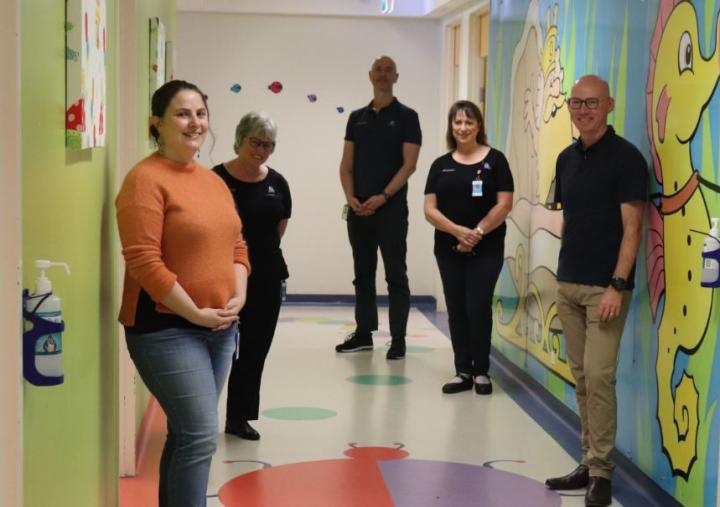Help for young people with chronic conditions

Credit: Royal Hobart Hospital
With stressed hospital services, and concerns about the spread of COVID-19, experts are reminding carers of children and young people of the importance of adhering to supported chronic condition self-management plans from the safety of their home.
Telehealth options, use of home-monitoring devices, keeping regular medical appointments and positive reinforcement from carers and health professionals are new ways to keep supported self-management plans on track, says Flinders PhD researcher Nicole Saxby, lead author on a study of key tools for program maintenance.
This is particularly vital for chronic conditions of childhood such as asthma, cystic fibrosis, congenital heart disease, diabetes, mental illness, as well as those with experience of childhood cancer or disability.
Ms Saxby, is lead author on a new publication in Patient Education and Counseling (Elsevier) with colleagues from, Royal Hobart Hospital, Flinders University and the University of Tasmania.
“From what we are seeing in Australia and overseas, significantly fewer children are presenting to hospitals or making contact with health professionals due to concerns about COVID-19,” Ms Saxby says.
“There is a great need to empower children and their families to actively manage their own health, particularly if they’re not keeping up their appointments.
“During periods of isolation, it is very important to watch for any early signs of a child’s health starting to deteriorate. Children and young people cannot self-manage their health themselves, They will need different levels of support from their caregivers and health professionals.”
The research has resulted in a new clinical resource called ‘Partners in Health: Self-Management Consensus List for Children and Young People’ which aims to provides easy-to-follow guidelines for safe and effective self-management practices – including methodology, care components and considerations for specific developmental groups
“Collaborative care with GPs and other health professions can be challenged by the needs of acute care during the pandemic,” says Flinders University Dr Saxby from her current position as dietitian and Statewide Paediatric Cystic Fibrosis Coordinator at the Royal Hobart Hospital in Tasmania. “We certainly don’t want people with chronic conditions to become victims of the current situation.”
Ways paediatric health services can use technology to communicate and educate children and their families include assessments via screen and digital connection to the home medical monitoring devices, frequent emails, and home visits by nurses and allied health professionals.
“As well, cystic fibrosis centres across Australia are looking at deploying devices that patients can use in their own homes to monitor lung function trends, which clinicians can review via a confidential portal,” Ms Saxby says.
“During the COVID-19 crisis, it’s also important our children and adolescents with health conditions to socialise with others – and social media networks such as Facebook groups is just one way to keep in touch.”
Flinders Professor Sharon Lawn adds that chronic condition self-management approaches designed for adults may not fit with the needs of children with chronic conditions and their families.
“Children are not just little adults,” she says. “These findings offer health services and professionals fresh insights into the transitions these children and their families must navigate as part of supported self-management,” Professor Lawn says.
###
The paper, ‘Developmentally appropriate supported self-management for children and young people with chronic conditions: A consensus’ by N Saxby, K Ford, S Beggs, M Battersby and S Lawn has been published in Patient Education and Counseling. Volume 103, Issue 3, March 2020, Pages 571-581 DOI: 10.1016/j.pec.2019.09.029
Media Contact
NIcole Saxby
[email protected]
Related Journal Article
http://dx.




